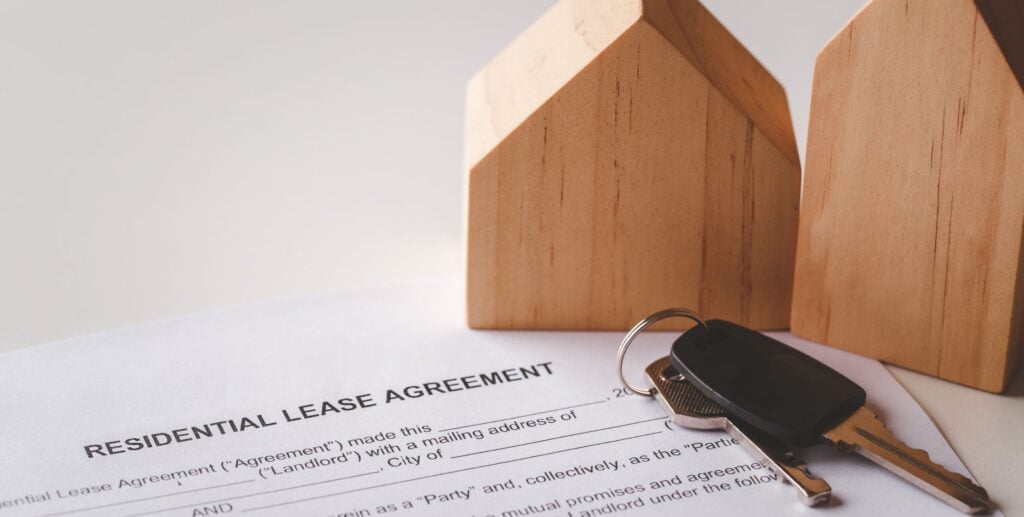A lease is a binding legal contract that includes protections for both the landlord and tenant. Just as you are required to uphold your end of the agreement as the landlord, tenants also have certain obligations they are required to uphold.
You have discretion in determining what to do when a tenant violates the lease. It doesn’t always have to lead to an eviction. It depends on the severity of the violation and other factors, like a medical emergency, temporary job loss, or something else.
Common Tenant Lease Violations
Leases can be customized to include whatever you like. You could add clauses that cover parking, guest restrictions, home business use, and other terms.
Here are some of the most common lease violations that you may encounter.
Non-payment of rent
The timely collection of rent each month is vital to your success as a landlord. You need the money to make your monthly note payments and to earn a profit. It’s so important that lease agreements typically include rent payment clauses.
A tenant who falls behind on paying rent is more than an inconvenience. It could jeopardize your investment. In addition to causing financial strain, the lack of rental income could force you to delay making needed repairs, which could affect your other tenants in a multiunit property.
Unauthorized occupants or pets
If a renter lets someone who is unauthorized stay with them, it could exceed the number of people who can safely live in the property. Unauthorized occupants may not be covered under your landlord’s insurance policy, which could increase your liability. It could also be a fire code violation.
Many landlords prohibit pets for good reason. They can be loud, can damage your property, and can also pose health and safety risks, like when a tenant has an aggressive dog or there is a flea infestation. A neighbor could also be allergic to certain animals.
Property damage
If a tenant is negligent or willfully damages your property, dealing with it could take up your valuable time and cause stress. Although your landlord insurance policy will cover some issues, it could also lead to premium increases. For all other repairs, you will either have to pay for the damages yourself or sue the tenant. In some cases, the damage could be severe.
Situations you may encounter include:
- Water damage from overflowing bathtubs
- Fire damage from smoking indoors
- Plumbing damage from flushing inappropriate items
- Stains, mold, and odor from inadequate cleaning
In cases involving severe damage, the tenant may have to move out, and you will have a loss of rental income until the repairs are completed. If the damage is from a fire or burst pipe, it could also affect other units.
For more information on this, check out our landlord’s guide on dealing with emergency repairs.
Noise and disturbances
Your tenants should be able to enjoy peace and quiet in and around their rentals. If they constantly deal with loud music or TVs, barking dogs, or disruptive parties, it may give them a valid reason to break their lease agreements and move out. It could also give your properties a bad reputation.
Loud noises and disturbances could also cause conflict among your tenants. The police may have to be called to deal with these situations.
Illegal activities
Illegal activities could negatively impact the reputation of your property, which could make it harder to find quality tenants. It could also attract those who disrupt the local peace, like people buying drugs.
Some common illegal activities to watch for include:
- Drug manufacturing and dealing
- Gambling
- Domestic violence
- Theft of property
- Disturbing the peace
Illegal activity on your rental property could result in some additional negative consequences, like a decrease in the value of your property, increased insurance premiums, loss of rental income, and increased maintenance costs. Because of these potential consequences, illegal activity should be dealt with as soon as possible to prevent further damage to your investment.
Assessing the Severity of Tenant Lease Violations
The severity of the lease violation should be considered when determining what to do. Is it a minor violation, or is it something serious that could affect your income and the peace and safety of your other tenants?
A one-time late rent payment, for example, is technically a lease violation, but you may choose to overlook it if it’s from a long-term tenant who has always paid on time. It’s important to consider whether something minor and infrequent is worth evicting a tenant over, or whether other measures—like making arrangements with the tenant—are more practical solutions.
A serious tenant violation is one that significantly disrupts the harmony of your community. It could also result in costly repairs or harm to the reputation of your property, or tie you up in legal disputes. If a violation is serious or recurring, removing the tenant may be the only way to solve the problem.
Always be consistent and fair when dealing with lease violations. If tenants know you gave someone a pass on a serious violation but you evict someone else for the same thing, they may no longer respect or trust you. It could lead to tenant disagreements, and it could also make it harder to resolve future issues.
Handling Tenant Lease Violations: A Step-by-Step Guide
How you handle a lease violation can affect the outcome. If you are professional about the situation and give the tenant a chance to fix the problem, you may be able to solve it without having to file an eviction lawsuit.
The following steps can help you deal with a lease violation the next time one occurs.
1. Document the violation
If a lease violation occurs, you need to collect evidence in case you have to go to court for damages or to evict. Also document both the violation and the steps you take to work things out with the tenant. The more detailed your records, the more evidence to support the eviction.
Be sure to hang on to all evidence that relates to the violation, including:
- Rent payment records
- Written communications
- Photos and videos
- Police reports
- Inspection reports
- Repair records and receipts
- Security camera footage
- Legal documents
2. Communicate with the tenant
You must inform the tenant of a lease violation in writing. Sending a letter by certified mail gives you proof that you notified the tenant and the letter was received. The letter should be professional and include a detailed description of the violation and the date it occurred or was discovered.
The letter should also state the evidence you have of the violation and what you expect the tenant to do. It should also give the tenant an opportunity to correct the situation, as well as clearly communicate what will happen if they don’t comply by a certain date.
3. Provide an opportunity for the tenant to fix the violation
The opportunity you give a tenant to fix the violation can be as simple as telling them to stop doing something. If they are throwing disruptive parties, for example, telling them they can’t have any more parties may be sufficient.
Tenants may need some time to fix certain violations. If someone is keeping an unauthorized pet, for example, giving them a week to remove it gives them the time they need to find it a new home. If the violation involves past due rent, you could give the tenant a specific date to pay by.
4. Initiate eviction process when necessary
Despite your best efforts, you may encounter a situation where an eviction is necessary. If a tenant continues to violate the lease terms or doesn’t fix a violation by a certain date, you may have to remove them to preserve the harmony of your rental community and maintain cash flow.
Be sure to send a written notice to vacate the property. Local and state landlord-tenant laws will dictate how much time you need to give someone to move out. If the tenant is still occupying your property after the move-out date passes, you will have to file an eviction lawsuit.
Tips for Preventing Tenant Lease Violations
There are some things you can do to prevent lease violations from occurring. Although they will require some extra work upfront, they may save you headaches down the road.
Thorough tenant screening
Although it may be impossible to prevent all lease violations, making sure you have the best renters you can find can help minimize problems. You can do that by thoroughly screening tenants.
There are several things you can do to evaluate applicants before they sign the lease and you hand them the keys:
- Perform a credit check
- Conduct a criminal background check
- Require proof of income
- Verify employment history
- Contact references
Be sure to use your intuition when evaluating tenants. A tenant could lie and say a reference is a former landlord when that person is actually a friend, for example. Although finding the right tenant may take a while, it could be time well spent if it prevents future violations.
When screening tenants, be sure you comply with all fair housing laws. The same screening process should be used with all applicants so you don’t run into discrimination issues.
Clear communication of lease terms and expectations
Your lease should be easy to read and understand so tenants will know what is expected of them. It should be written in plain language, with limited use of legal jargon to prevent confusion. Your lease should outline both the tenant’s and landlord’s responsibilities.
Here are some common things a lease agreement should include:
- Rent due date and late fee
- Pet policy
- Security deposit information
- Alterations to the property
- Cleaning and maintenance
- Number of occupants allowed and subletting
Tenants should understand the terms of the lease and what is expected of them. Be sure to ask new tenants if they have any questions about the lease before they sign it so you can address their concerns. After the lease is signed, mail or drop off a copy to them.
Regular property inspections
Being proactive about regular rental property inspections is a great way to catch small problems before they become big issues. The frequency of inspections is up to you, but they could be quarterly, biannual, or annual. Before you inspect a property, follow the entry notification requirements where your property is located to be compliant with landlord-tenant laws.
Be sure to use a checklist when inspecting properties to make sure you don’t miss anything. Also, share the results of the inspection with the tenant. The property inspection isn’t just for your benefit—it’s also a way to keep your tenants informed.
Fostering positive landlord-tenant relationships
Your tenants should feel comfortable coming to you if there’s a problem. If they have trouble contacting you or if they believe you will be dismissive of their concerns, they may postpone telling you something important. If a tenant doesn’t tell you about a roof leak, for example, it could result in major damage if it isn’t quickly addressed.
Foster a positive landlord-tenant relationship by encouraging tenants to reach out if they have any questions or concerns. Be sure to respond as soon as possible and quickly take care of repairs to keep your property in good condition. Also, if a tenant experiences a temporary hardship, consider being flexible until they can get back on their feet.
Final Thoughts
Tenant lease violations aren’t just an inconvenience; they can also affect your landlord insurance. Some violations, like property damage or illegal activities, could result in coverage denial, increased premiums, or other problems.
Doing everything you can to minimize the possibility of violations benefits both you and your tenants. It helps to ensure that your property is a peaceful, safe place for everyone to live. It also helps with cash flow, saves time, reduces stress, and protects your valuable landlord insurance policy.
Save time and money with this refreshing guide to managing your own properties.
In The Self-Managing Landlord, Amelia McGee and Grace Gudenkauf share the secrets of efficient property management, tenant screening and onboarding, and scaling your business—all to help you break free from the 9-to-5 grind and create lasting wealth through real estate.
Note By BiggerPockets: These are opinions written by the author and do not necessarily represent the opinions of BiggerPockets.



















.png)


Discussion about this post